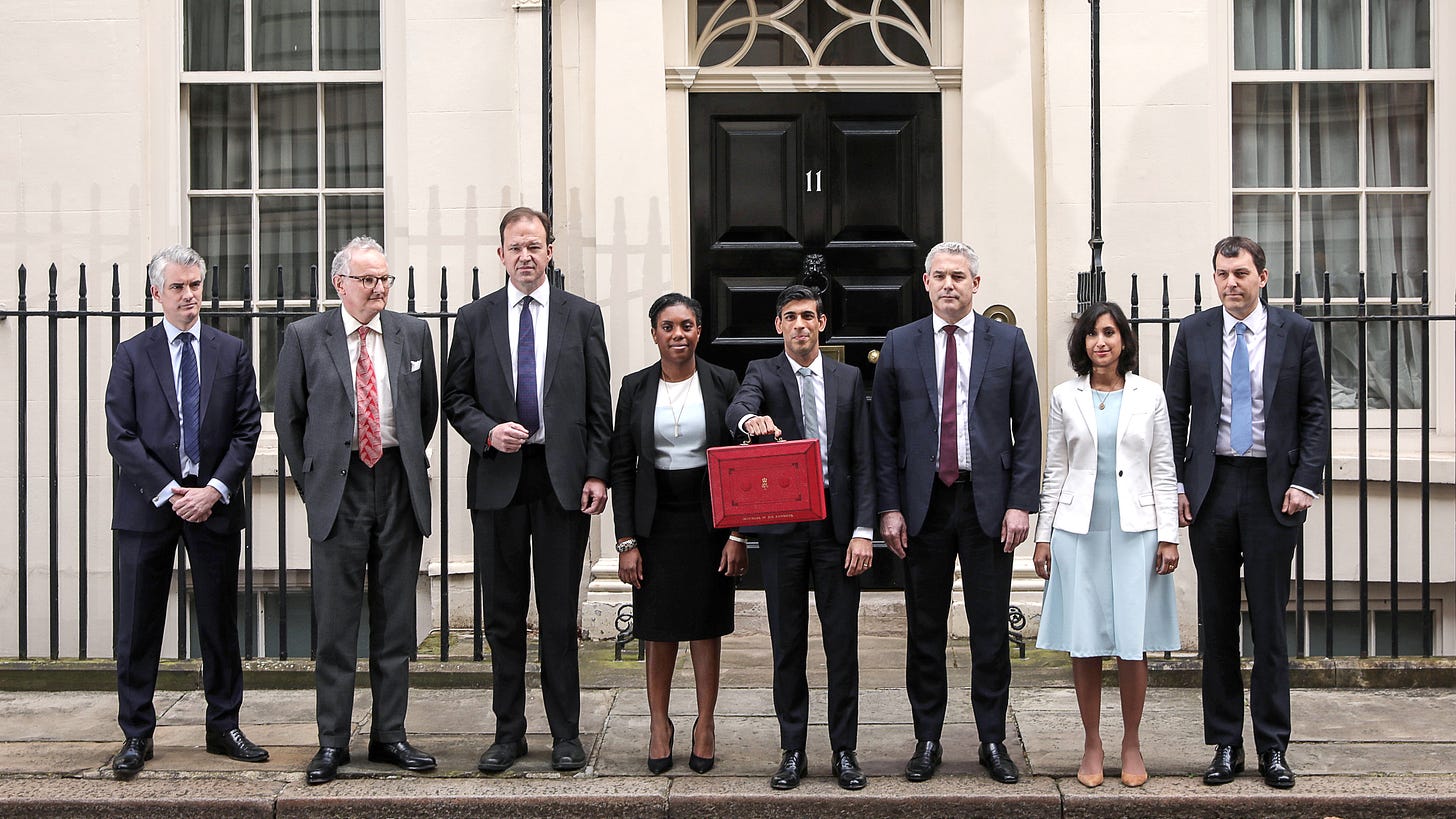Hello, and happy Friday! It’s been a seismic couple of weeks here in Britain. After a slew of ministerial resignations toppled Boris Johnson, the Conservative Party—and, by extension, the country—is in need of a new leader. The race to succeed him is shaping up to be one of the most ethnically diverse leadership contests yet.
More on that below. But first, I wanted to share some ~personal news~ with all of you: After six unforgettable years at The Atlantic, I’m heading to a cool new job at TIME! I’ll be joining the magazine’s London bureau as a staff writer covering foreign affairs with a particular emphasis on the future of democracies and rising authoritarianism around the globe. It’s a dream job and I can’t wait to get started!
I’m so grateful to have gotten my start at The Atlantic and to have had the opportunity to work with and learn from so many kind and generous people here. From Washington, D.C. to London, it’s been quite the journey since 2016—one that I look forward to continuing as a subscriber.
I start at TIME in mid-August and in the meantime will be taking a break to read, relax, and ready myself for exciting times ahead. If you have book recommendations, words of wisdom, or tips for how to make the most of my temporary fun-employment, please get in touch.
Fun fact: Pictured below is my first Atlantic byline (left) and my latest Atlantic byline, separated by six years and hundreds of stories. Needless to say, we’ve come a long way.
What I’ve written
Fed up with Boris Johnson, Britain needs a new prime minister. It’s so fed up, in fact, that the next prime minister may look nothing like Johnson—that is, white, male, privately educated.
Of those originally in contention, half were of ethnic-minority backgrounds and half were women. Until Wednesday’s initial selection, Britain could have had in Rishi Sunak or Suella Braverman its first Asian prime minister, in Kemi Badenoch its first Black prime minister, or in Nadhim Zahawi its first Kurdish and Muslim prime minister. (Zahawi and Braverman have since been eliminated, but Sunak and Badenoch remain in a field of five hoping to advance to the final stage of voting, slated for September 5.)
I wrote about why the Conservative Party in particular has led Britain to this historic moment and what it reveals about the country’s sense of self:
Diversity, after all, is generally regarded as a progressive shibboleth, not a Tory one. But as Katwala told me, this shift in representation among Conservatives did not happen organically but was the result of a years-long effort spurred by the former Conservative leader and prime minister David Cameron. When Cameron took over in 2005, the party claimed just two ethnic-minority members of Parliament, and he set out to ensure that his party more closely resembled the modern Britain it hoped to lead. Keep reading here
What I’ve read
This moving tale of two men who found friendship and redemption at a New York City homeless shelter (The New York Times)
Friendships can be hard to memorialize — relatives, partners, children often take pride of place. But a friendship can be the defining bond in a person’s life, offering a kinship that family cannot, a refuge through lonely, hungry days.
This must-read piece on the Stop the Steal candidates running to oversee future state elections (The Atlantic)
A nightmare scenario in 2024 isn’t hard to conjure: As secretary of state, Finchem could try to muddy the waters after an election outcome that he or Trump didn’t like by delaying or undermining the election-certification process. If the governor or attorney general shared his desire, they could decide not to certify the election. Arizona on its own might not be enough to tip a general election—Biden would still have won if this scenario had played out in 2020—but if leaders in other states, say Michigan and Pennsylvania, do the same, the election outcome could be subverted.
This wild interview that confirms what many feared: he’s running (New York Magazine)
“Look,” Trump said, “I feel very confident that, if I decide to run, I’ll win.”
I fixated on If I decide. Trump is less a politician than a live-action mythological creature, and so punditry and all of the standard forms of analyses tend to fail. What would factor into such a decision for such an unusual person? “Well, in my own mind, I’ve already made that decision, so nothing factors in anymore. In my own mind, I’ve already made that decision,” he said.
What I’m thinking about
I’ll be taking a brief break from this correspondence between jobs. Stay tuned for my last two Atlantic stories and see you in August!
Until next time,
Yasmeen





